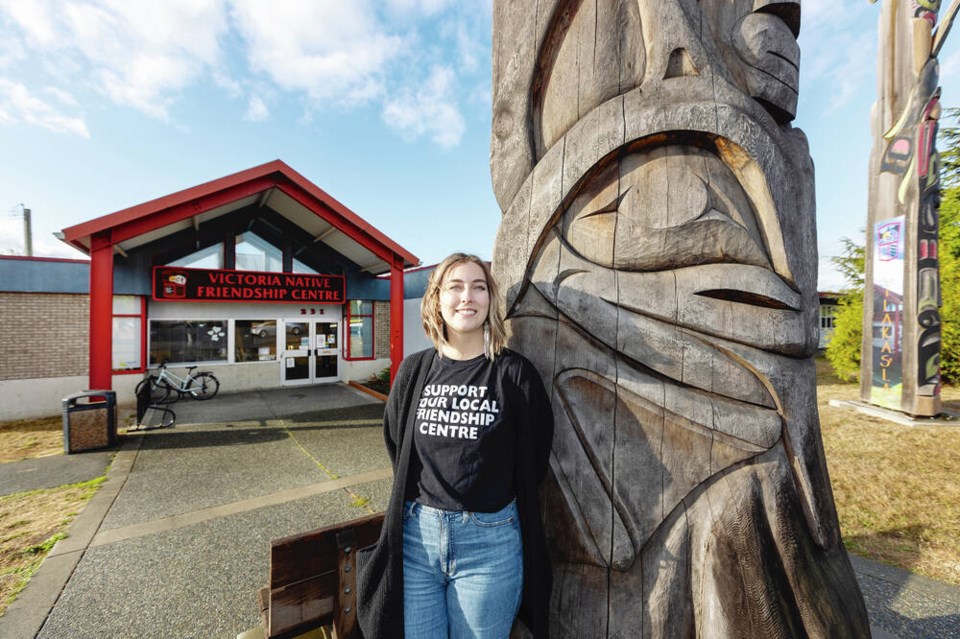Today’s Indigenous youth are tomorrow’s knowledge keepers.
That’s the thinking behind the Victoria Native Friendship Centre’s Youth Services Team, which offers one-on-one support to help Indigenous youth ages 12 to 24 overcome barriers and build resiliency.
Those supports can include help making and getting to crucial appointments, assistance with resumé writing and job applications, pregnancy and parenting support, help getting referrals for mental-health or substance use programs, support for housing applications, and access to sports and recreation.
The youth program employs four Indigenous youth support workers, who carry average caseloads of 15 youth at a time, offering one-on-one support as well as 2SLGBTQIA+ programming.
A further two trained Indigenous staff manage a drop-in program for those ages 12 to 18.
Youth can self-refer to the program, or be referred by family and professionals.
The youth have to be willing participants, as it is a voluntary program.
The program recently received a $30,000 grant from the Victoria Foundation, but more funding is needed to keep up with demand, says the co-ordinator, noting the program has a long wait list.
Aly Waddell, administrative co-ordinator of youth programs at the Victoria Native Friendship Centre, says urban Indigenous youth have not fared well during the pandemic, showing signs of increased anxiety, depression and suicidal thoughts.
“Our youth team cannot keep up with the complex case load,” said Waddell, who is Métis.
“It would be awesome to be able to hire more outreach workers to combat our four-month wait list and provide services to as many youth as we can.”
The Friendship Centre is also working on expanding the hours of its 2SLBTQIA+ youth drop-in, which currently runs once a month. “We would love to see this running more regularly eventually, as well as we are working on increasing engagement.”
Waddell said the Youth Services Team, which serves more than 250 youth ranging in age from 12 to 24, is creating leaders and, by extension, healthy families.
“We recognize that our youth are the future and are the ones carrying our culture and ways of life forward,” she said.
“Many of our Indigenous youth are leaders already and will become knowledge keepers for future generations. Our youth may face many structural and systemic barriers associated with colonization, but they continue to be strong advocates to make changes for a better future.”
The programming serves youth from 10 First Nations on southern Vancouver Island: Pacheedaht First Nation, T’Sou-ke Nation, Sc’ianew (Beecher Bay) First Nation, Esquimalt Nation, Songhees Nation, MÁLEXEȽ (Malahat) Nation, BOḰEĆEN (Pauquachin) First Nation, W̱JOȽEȽP (Tsartlip) First Nation, SȾÁUTW̱ (Tsawout) First Nation and W̱SĺḴEM (Tseycum) First Nation.



